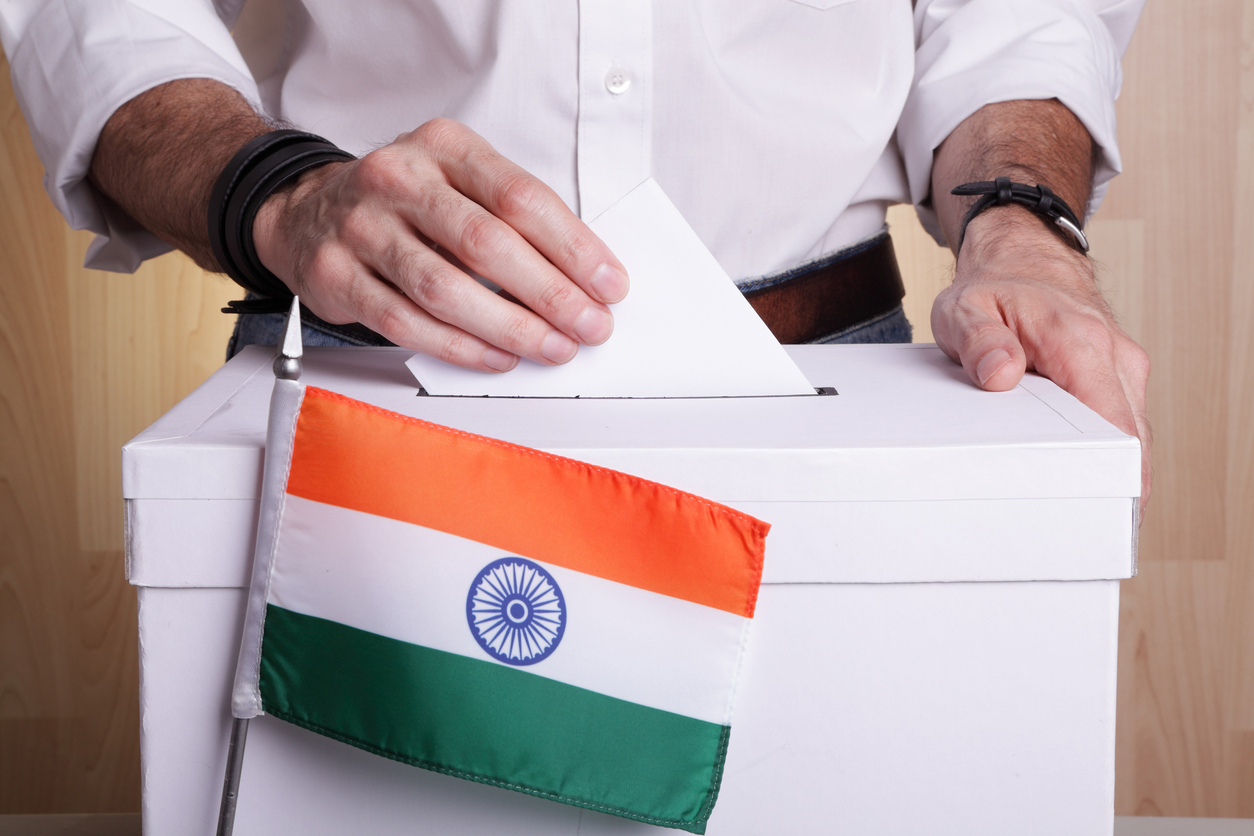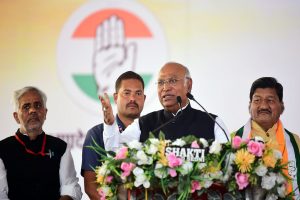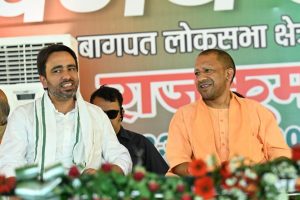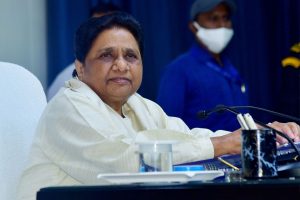India is no ordinary country. They say if India didn’t exist, no one would have had the imagination to invent it. We Indians love to gossip and quarrel over smallest of issues. For us, ideas are worth dying for. The more adversarial the idea the better. We are also born to oppose. We Indians always need an enemy to fight, perhaps a fortress to capture! India has survived through the long tradition of discussions, contestation and debate.
For the newly independent countries in the post-war period, India became a flag-bearer of democracy in spite of high illiteracy, bone-chilling poverty and social evils like the caste system. Such were the odds against India that the Western commentators believed if democracy can make it there, it can make it anywhere. Ironically, India stuck to democracy while country after country fell perilously into the hands of autocrats and tin-pot dictators.
How did that happen? Gopal Krishna Gandhi says, “The people are fuel. They combust, ignite. They spur, empower.” Building democracy is like searching for truth. The search for truth is like digging for gold. You wash the nuggets under the tap and you have the full value of the gold. In the immediate aftermath of independence, India did precisely that.
Using the power of democracy, India created a new paradigm. It rejected the view that a country must first become economically fit for democracy. It chose to be economically fit through democracy. India debunked the perception that democracy impeded development. India’s success extended the hand of democracy globally. By holding the banner of democracy aloft, India blazed a new trail in a world surrounded by democratic darkness. That prompted Bernard Levin, renowned columnist of The Times (London), to say that “if democracy in India falls, the end of democracy itself will be in sight.”
Democracy by its very nature is a contested terrain. Its genius, material value and implications must be constantly debated. What is beyond debate is that no one has a right to question that contestation. Democracy is a daily plebiscite. Demand for more power, more autonomy represents a daily interrogation of that existence. Democracy goes through frequent negotiations, compromises, failure of talks and accords. It is through constant churning that Indian democracy matured.
In History in the Making, J H Elliot makes a distinction between a chosen nation and a victim nation. A chosen nation thinks it has spiritual, biological and other characteristics to make it a dominant power and a victim nation tends to attribute its misfortunes to others.
Nehruvian India didn’t blame others for all its miseries. It believed that discrimination against the oppressed classes and women was not the fault of the White coloniser, but a product of traditional Indian practices. Tagore insisted that Indians should glory in the illumination of lamps lit everywhere in the world. The nationalism of Gandhi and Tagore was not based on a sense of persecution nor a sense of cultural or racial superiority. India today claims to be a chosen nation but continues to behave like a victim nation.
India has much to celebrate, but much more to ponder. Are we celebrating too much? Are we celebrating to be amused or entertained? Grace is the celebration of life which seems to be in short supply. We are looking for history in all the wrong places. We have thus become the victims of streetlight effect, that is, propensity to look for something only where the search is easy.
Asked about the impact of the French Revolution on the Western civilisation, Chou Enlai told Kissinger, “too early to tell.” The jury is still out on many historic events. It is indeed too early to pass conclusive judgement on India’s 75-year journey. But the journey is long enough to notice the spots on the skin.
The journey of Indian democracy has many proud moments. India has crossed many pinnacles and climbed many summits. But the journey has also been littered with many flashpoints, fault-lines and reckless brinkmanship. The journey of ideas has been perilous. What is democracy if not the battle of ideas? Will India be the phoenix of freedom or the phoenix of fear?
India has a proud history of thought — from thought to discussion, from tradition to canon formation and from sociology of knowledge to the anthropology of knowledge.
In the initial years, the network of gatekeepers-free press, vibrant civil society, enlightened citizenry kept democracy shining. As years passed, the gatekeepers have become increasingly powerless. India’s attractiveness about democracy is increasingly tarnished while its economy continues to limp.
India finds itself in a state of aporia and rupture. How has it come about? Political parties are largely to blame. Most parties are shells built around a single leader’s transient popularity. Parties no longer have roots in our society. Parties treat citizens as consumers. They have dialogue with pollsters, not voters. Age of “intermittent citizenship” perhaps?
While a new kind of ‘leaderism’ has emerged, parties have become bodies without organs, clenched and muscular but without real internal metabolism. The supporters don’t swarm the rallies, leaders choreograph the swarm of supporters with tweets and Russian bots. We don’t know who to trust, leaders promising El Dorado or the media and their condescending comments. Today everything is politics.
Spanish philosopher Daniel Innerarity calls it “democracy without politics”. The difference between the representatives and the represented is becoming too large. French historian Pierre Rosanvallon terms it “impolite democracy”. People are aggravated and the political system is agitated, but their interaction barely produces anything new.
Another disturbing trend is the near complete merger of the nation with the state. The boundary between the state and market too is becoming fuzzy.
The phenomenon of what John Keane of University of Sydney calls “unelected representatives” has seriously undermined democracy. At a time when Parliament is being used increasingly as a rubber stamp and other democratic institutions have suffered serious erosion, unelected representatives (bureaucrats, religious leaders, business tycoons and media empires) have begun to alter the political geography of democracies.
Democracies are increasingly turning to the unelected bodies to demarcate boundaries between the market and the state as also to resolve conflicts of interest and to allocate resources. If remedial action is not taken, such bodies may become, for all practical purposes, a new branch of government. It is not clear who is accountable to whom and for what. Bureaucracy is happily unaccountable.
Politics has become nastier and murkier. It is too fractious. The toxicity of public discourse is undermining critical thinking. The crescendo of abuse towards political rivals is alarming. Social media has deepened polarisation. It isn’t the cause but a conduit. Political class has become a consummate cultural warrior.
Politics is increasingly being reduced to procedures of consensual governance which engages different stakeholders but excludes any voices contesting the hegemonic consensus. This phase has been variously described as “post-democracy” and “post-politics” era.
Citizens are treated as conscripts. Citizens are fast losing their power of ‘no’. Gandhi taught us how to say ‘no’. ‘No’ is not only a symbol of resistance, it is the strongest word in any language. It implies a halt, a cessation that enough is enough.
Democracy needs opposition, what J K Galbraith calls “countervailing power”. Quoting John Stuart Mill on how democracy is government by discussion, Amartya Sen argues that “if you make discussion fearful, you are not going to get a democracy, no matter how you count the votes”.
Democracy also requires a strong citizenry, and not citizens as conscripts. In some countries, citizens’ assemblies now seem a viable addition to the tools of democratic governance. These assemblies give voice to citizens on complex, value-laden topics outside of what can be the polarising dynamics of electoral politics.
Democracy today exhibits plebiscitary trends and clientelist distribution of offices and resources to loyal soldiers of supporters. India is no exception. We often hear ruling party leaders claim that whosoever wins an election has the popular mandate to govern. Has India become what Guillermo O’ Donnell calls “delegative democracy?”
In a delegative democracy, the supreme leader becomes the embodiment of the nation and the main custodian of the national interest. By implication, it means that whatever the prime minister does need not bear any resemblance to what he said or promised during the electoral campaign. Institutional vandalism is there for all to see. Because the government needs to rescue the nation from the crisis, its actions don’t always respect democratic institutions.
Delegative democracy is anti-pluralist and, in the end, anti-democratic. What we are attempting at is the re-foundation of the nation and righting the wrongs of history. Prime Minister Narendra Modi often proclaims: “Ours is a new India with new methods and policies.” The grand narrative of what is new and modern presupposes that it is an incomplete project. It is also imbued with the idea of progress. The problem is that the philosophy of progress rejects cultural pluralism.
Democracy means power coming to where the people are. What is happening today in many parts of the world is the people coming to where the power is.
The day party members and bureaucrats begin falling over themselves to prove their loyalties to a leader by outdoing the other in extremism, democracy dies.
Large sections of people live under hardscrabble conditions. In the midst of massive growth of inequality, there is a grotesque celebration of greed. On all global parameters of democracy, India is slipping. As the Berggruen Institute Governance Index shows, on all the three measures — state capacity, public goods provisioning and democratic accountability, India’s decline is significant.
There is a danger of democracy degenerating into power grabbing. India remains vulnerable to populist demagoguery and the predatory power of cross-border corporate and governing institutions,
What lies ahead is the great unknown. Politics is turning into a one-way mirror. While India remains a democracy at the core, the gamification of democracy is worrying. The self-restraint of the executive has all but disappeared and gatekeepers of the cabinet meant to step in when all else fails have disappeared. The shine came off Indian democracy’s halo long ago. Today, it is no more a shining beacon of hope.
Myth makes the people, not the people the myth. Modi holds a Manichean vision of the world often taking an anti-elite tone. He not only looms large on Indian politics, he is, today, among the most popular leaders in the world. He owes his success to his ability to keep his narrative people-centric, making a fine distinction between “good people” and “evil elites”. He has invented a new notion of ‘people’ which is anchored in a religiously defined community. What is important is what he says. It is even more important what he doesn’t. He smartly seeks to convey through symbols and allusions. However, it is not hard to see how he has attempted to replace unpleasant facts with comfortable fantasies.
There has been genuine progress in some sectors but a positive political narrative is also the result of media grandstanding and statistics being cherry-picked.
India seems to be moving towards “post-democracy” where formal aspects of democratic institutions remain largely in place while politics and government are increasingly slipping back into the control of privileged groups. Leaders have become big. It is the people and the institutions that have become small.
Great leaders create more leaders, not gobs of followers. In German dramatist Bertolt Breadt’s play, “Life of Galileo”, one of the characters says, “unhappy land that is in need of heroes.”
No democracy is imperishable. In fact, the most notable quality of democracy is its fragility. Democracy often gives its deadly enemies the means by which it is destroyed. John Adams went to the extent of saying that “there never was a democracy yet that did not commit suicide.” Democracy is facing a critical crisis globally.
Political parties, core institution of democratic accountability, need to be reformed and strengthened. They need to be rescued from leaders. Weak parties are prone to patronage deals. The political parties have become the hidden world of match-making, who gets what and why. It is time to save democracy from itself.
Democracy has expanded in India but has it deepened? Democracy requires new imagination and constant reaffirmation. We don’t know what the best model of democracy is. As Turkish writer Nazim Hikmat says, “The most beautiful ocean is the one we have not yet seen.” What we know is that “peacock dance”—three steps forward, one step backwards and spread colourful feathers is not the model to flaunt. Democracy is a journey but also a destination. India hasn’t lost the path, but hasn’t found the way.
——————
(The author is Director, Institute of Social Sciences, Delhi)











